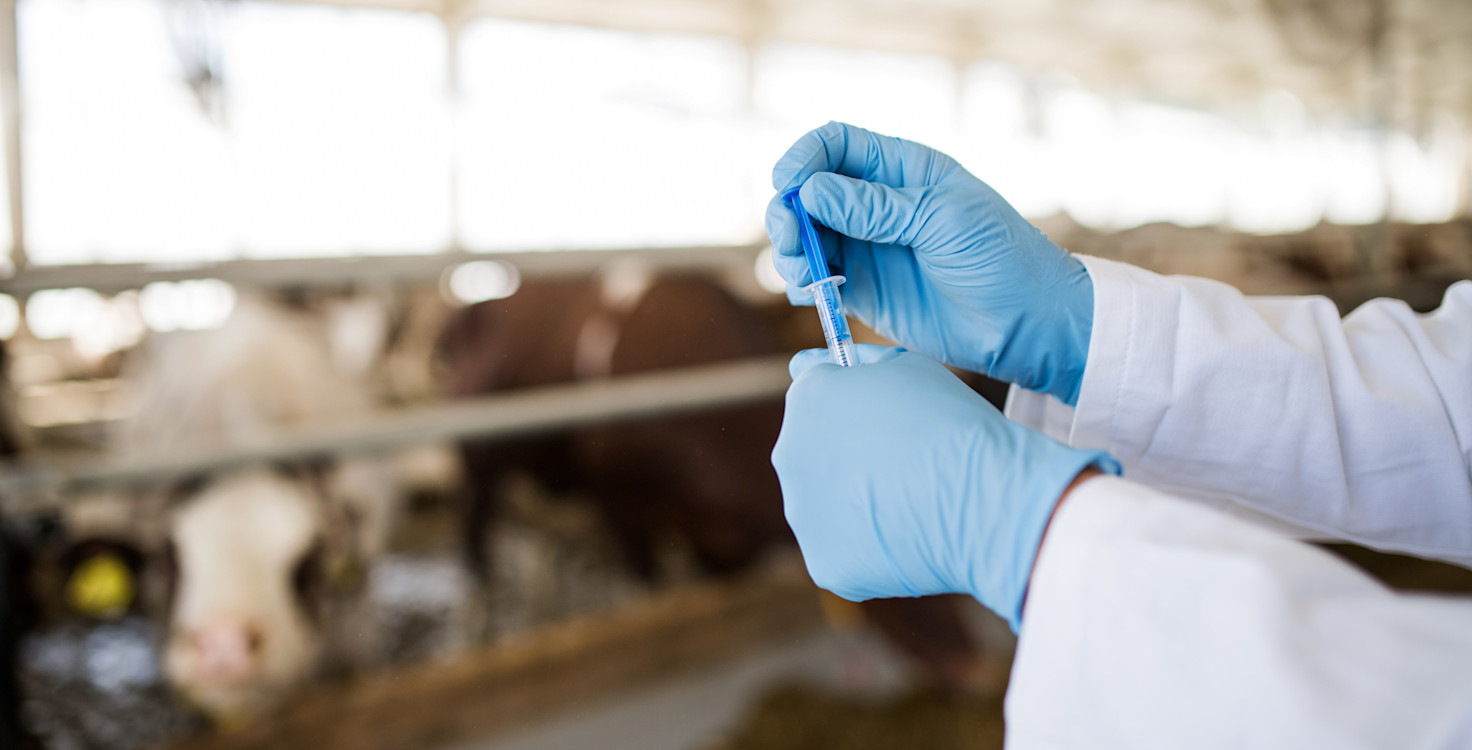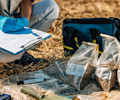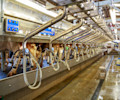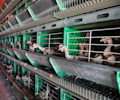As Antimicrobial Resistance (AMR) continues to spread, more and more of the drugs that we rely on to treat and prevent infections no longer work. Unless urgent action is taken to halt this development, in 25 years one in ten global deaths is projected to be caused by AMR. The development of AMR is closely tied to the overuse and misuse of antibiotics in humans, animals and agriculture and not only threatens public health but also poses a systemic risk to economic stability and investment portfolios. As such, AMR has increasingly become a focus for investors.
This article demonstrates why AMR is a critical issue for investors, examines the current global landscape of policies and initiatives aimed at addressing AMR - including the long-awaited United Nations General Assembly (UNGA) High-Level Meeting on AMR - and highlights investors’ role in supporting global effort to tackle AMR through the recent launch of the Investor Action on AMR (IAAMR) Public Investor Statement.
The impact of AMR
Currently, AMR is responsible for 1.27 million deaths annually, and this figure is expected to rise to 10 million annual deaths by 2050 if left unchecked. The economic burden is equally staggering, with projections suggesting that AMR could cost the global economy up to $100 trillion by 2050 through increased healthcare costs, loss of productivity, and extended hospital stays. In addition, the World Bank estimates that AMR could lead to a 3.8% decline in global GDP by 2050. In the animal protein supply chain, inappropriate use of antibiotics contributes to the development of AMR, with an estimated 73% of antibiotics sold globally being administered to food-producing animals.
This triple threat to human life, animal welfare and economic well-being underscores the urgent need for a One Health approach to AMR – whereby policies and initiatives consider the interconnectedness of humans, animals and the wider ecosystem - and coordinated action from all stakeholders.
Importance of AMR policy action to address the gaps
Robust policy action is crucial to combatting AMR. The 2016 UNGA High-Level Meeting on AMR was a landmark event, resulting in the adoption of a Global Action Plan aimed at curbing AMR through improved stewardship, enhanced infection prevention, and better surveillance. Since then, key regulations have also emerged or been strengthened, such as the United States Food and Drug Administration's (FDA) stricter policies on antibiotic use in livestock and the European Union banning the routine prophylactic use of antimicrobials in food animals other than in exceptional cases. And, most recently, in May of this year, the UK government amended regulation to ban the use of antibiotics in farm animals for routine use to compensate for poor hygiene and farm management practices. These regulations have led to measurable improvements, including a reduction in antibiotic use in agriculture and a decrease in the emergence of resistant bacterial strains.
However, critical gaps in policy persist globally. According to the 2024 Global Database for Tracking Antimicrobial Resistance (AMR) Country Self-Assessment Survey (TrACSS), 170 countries have a national AMR action plan. However, 26% of countries are not actively implementing these plans. Additionally, 30% of responding countries do not have systems in place for monitoring sales or use of antimicrobials in animals and 40% of countries do not have legislation banning antimicrobial use for growth promotion.
The global push for AMR action in 2024
In the run-up to UNGA, FAIRR has supported this momentum by publishing an engagement progress report, ‘From Farms to Forks’ and arranging investor events, such as the recent MSCI Sustainability Institute roundtable on AMR. The roundtable was jointly organised by the MSCI Sustainability Institute, FAIRR and IAAMR, and marked the release of a new guide to AMR for investors. |
The year 2024 has been marked by a series of high-level meetings dedicated to addressing AMR. The momentum began in January at Davos 2024, followed by events such as the United Nations-led Multi-Stakeholder Hearing on AMR, the World Health Assembly, and the H20 Summit where AMR was prominently discussed as a critical global issue.
The outcomes of these events set the stage for further commitments and actions, such as those that will culminate at the UNGA High-Level Meeting on AMR on 26 September 2024. It marks the first time such a meeting has been convened since the 2016 High-Level Meeting, when all 193 member states endorsed the Global Action Plan on AMR, as mentioned above, as well as established the Interagency Coordination Group (IACG) on AMR. This group, comprising representatives from the AMR quadripartite, has been instrumental in shaping the global response to AMR through comprehensive policy recommendations and facilitating international collaboration. The 26 September meeting is anticipated to serve as a crucial turning point, driving significant policy changes and reinforcing the global momentum needed to address AMR effectively.
2024 political declaration
This month’s UNGA High-Level Meeting on AMR is anticipated to be a transformative moment in the global fight against AMR. The final draft of the Political Declaration of the High-Level Meeting on Antimicrobial Resistance has recently been made public and focuses on strengthening country-level policy commitments and enhancing international collaboration and coordination, including the establishment of a much-anticipated international independent panel on AMR. It is encouraging that the draft is more ambitious than the 2016 Political Declaration, takes a One Health approach and has gained consensus from the UN member countries thus reenforcing the world’s attention on AMR.
Beyond the 2030 target to reduce human deaths caused by AMR by 10%, at this point, there is no equivalent quantified target for animal agriculture in the draft. Additionally, the final draft declaration has watered down a previous commitment to a 30% reduction in antibiotic use from current levels to a more general commitment to meaningfully reduce, by 2030, the quantity of antimicrobials used globally in the agri-food system.
It is hoped that following the final negotiations, the political declaration will lead to development and implementation of governance and accountability mechanisms as well as country- and context-specific commitments down the line. Such as introducing stronger regulatory frameworks and quantified targets across the One Health universe, and increased funding for the development of new antimicrobials.
As these commitments take more concrete form in the years to come, there is a clear role for investors to play to support that the gaps highlighted by the IAAMR statement will also be addressed to provide a clear path forward for future action.
IAAMR Public Investor Statement
Launched in 2020 by FAIRR, the Access to Medicine Foundation, and the UK Government, the IAAMR initiative aims to galvanise investor action to drive progress in combating AMR across a One Health spectrum. Earlier this year, the IAAMR initiative developed an investor statement calling for concrete AMR policy actions. As of 2 September 2024, the IAAMR statement has achieved significant support with 80 investor signatories representing $13 trillion in combined assets endorsing it.
The IAAMR statement highlights existing gaps by identifying seven key areas of action. These measures are material to investors as they address systemic risks that impact the long-term sustainability and financial stability of companies not only within the food sector but all sectors.
Three top line asks include:
Urging the establishment of an independent panel, modelled on the International Panel on Climate Change (IPCC), to provide regular scientific assessments on AMR
Supporting the creation of a globally integrated surveillance system for AMR and antibiotic use, building on existing systems to better identify and address patterns
Committing to the safe use of antibiotics in agriculture by ending inappropriate use for growth promotion and routine group prophylaxis in animal farming
These asks are material for investors as they help manage and mitigate financial and operational risks associated with AMR, ensuring that investments are safeguarded and contributing to a sustainable and resilient global food system.
Investor role in global AMR commitments
Investors’ presence in public policy spaces can help advance global commitments around AMR at the policy and company levels.
By calling for the key policy asks outlined in the IAAMR statement, investors play a role in ensuring economic stability and safeguarding environmental, animal and public health through cross-sector collaboration and effective stewardship practices.
Investor engagement can support the achievement of the UNGA on AMR objectives and global AMR targets by advocating for aligning corporate practices with global health guidelines. An example of recently proposed guidelines include recommendation from the Global Leaders Group on AMR – established by the IACG – which aim to reduce the use of antimicrobials in agrifood systems by 30-50% and eliminate the use of Medically Important Antibiotics (MIAs) in animals for non-veterinary medical purposes by 2030.
Active investor support for initiatives such as IAAMR helps bridge the gap to achieving these targets, safeguard long-term value creation and drive systemic change through antibiotic stewardship.
Conclusion
Global policymakers are sending stronger signals on the necessity for coordinated action around AMR, and investors have an opportunity to step up and join this charge. The high-level events of this year have emphasized a unified response based on enhanced surveillance, innovation in antibiotics, and improved funding mechanisms for antimicrobials. It is hoped that the commitments outlined in the final UNGA declaration will result in ambitious and comprehensive actions in the years to come that cover all aspects of One Health.
As AMR emerges as one of the biggest threats to global health, the role of investor stewardship in this collaborative effort becomes more critical. By leveraging capital and demanding robust policies, greater transparency and a decrease in inappropriate antibiotic use in the food system, investors can influence industry-wide changes that mitigate the systemic risks associated with AMR.
We call on more investors to join the fight against AMR. The IAAMR Public Investor Statement remains open for sign-on for all asset owners, investment managers and investor representatives until Tuesday, 31 December 2024.
FAIRR insights are written by FAIRR team members and occasionally co-authored with guest contributors. The authors write in their individual capacity and do not necessarily represent the FAIRR view.












